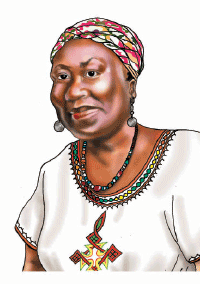In April of this year (2015), I was invited to be a discussant of a paper to be given by Professor Adamolekun at the annual May Day lecture of the Silver Knights, a men’s club based in Ibadan. The lecture was held at Lead City University. I have chosen this week to share my contribution at that occasion.
Prof. Adamolekun’s characterisation of the Nigerian experience as falling into either of two categories – a Virtuous Cycle or a Vicious Cycle – is quite useful and insightful. The only issue raised in my mind was how many times power needed to pass from one form of government to another for it to qualify as a cycle. Also, the question of institution building was what prompted my writing of Daybreak Nigeria – This Nation Must Rise! (2014, Prestige Publishing), and my point of departure was a very simple piece of evidence: things generally work in developed nations. Permit me to quote directly from the book:
What do so many countries, mostly in the West, do right – or, at least, what were they able to do so well in the past to significantly improve the living standards of their populations? How come several Asian countries are also succeeding in turning around their lot and bringing their populations into an era of prosperity? And why have we, particularly in sub-Saharan Africa, been unable to do the same? What do we do wrong, or what critical notions have we failed to comprehend, imbibe and successfully apply, thereby ensuring that we remain the poorest, most underdeveloped, most disorganised, most unstable, most disease-ridden, most poverty-stricken region of the world, with unacceptably low – and, arguably, the most deplorable – standards of living on the globe?…
How, and maybe ultimately, why, have others been able to build lasting structures, institutions and systems that work fairly well basically, almost regardless of the political leaning of their leaders at any given time, or even allegations of corruption that might be leveled against them? The facts are clear: in these countries the streets are kept relatively clean, water flows through the taps, electricity supply is certain, except in unusual cases (for instance, during maintenance or in times of bad weather), and more than a few aspects of life are, to a large extent, quite predictable.
This is primarily a matter of building institutions which are almost capable of running by themselves. In reality, however, that would only happen when the people involved have completely internalised the system on which the institution runs. That is, there is a quasi-automation of the system, with each individual performing its function with timeliness and precision, knowing how their particular component fits into the overall scheme. How does one achieve that?
Prof. Adamolekun quoted Chief Obafemi Awolowo’s assessment of Western Nigeria’s civil service in 1959: “Our civil service is exceedingly efficient, absolutely incorruptible in its upper stratum and utterly devoted and unstinting in the discharge of its onerous duties.” Incredible! Which Nigerian institution could one honestly describe in such terms today? That level of efficiency can only be achieved through the regular and effective training and retraining of the public servants (mostly at the region’s Institutes of Administration). This reminds one of the “Ecole Nationale d’Administration” which is de rigueur for high-level French public officials. Even though some of our administrative institutes or their successors still exist today (ASCON, NIPSS), their impact on the conduct of our public business is hardly perceptible. Of course, it is corruption that makes nonsense of everything. It creates disjunctions for us, ensuring that true development continues to be a mirage. So, what is to be done to return us to what the lecturer called a “virtuous cycle of development-oriented political leadership”?
A government that seeks to seriously combat corruption must take some important steps. The interventions proposed by Prof. Adamolekun to chart the way forward for our nation must be paid attention to by the administration of President Muhammadu Buhari. I would like to add the following: absolute transparency in the conduct of our business. An example: Benin Republic’s government decided to publish and widely disseminate information regarding the costs and amount of time required for all government procedures, like applying for a driver’s license or a passport, registering a business, or running specific tests in public hospitals. Announcements were made repeatedly on the radio and television, and pamphlets were produced and distributed all across the country. The impact was almost immediate, because it then became difficult for government officials to ask for more money than had been published.
The other important aspect of that “Beninois revolution” concerns the timely delivery of services to the public. It became widely known that it should not take more than say, one week to clear your goods at the port, and the people were empowered to demand that the promise be kept. What this translates into, in reality, is that the productivity of the public service was monitored – an area where Nigeria is seriously deficient. Prof. mentioned that the military enshrined centrality and uniformity, causing us not to make necessary distinctions in our governance practices: all employees earn the same salary, regardless of differences in the realities prevalent where they work (Abuja or Ile-Ife) and of their level of productivity. We must find a way to measure productivity and remunerate it appropriately. Incentives might be necessary at the beginning, as we embark on the task of “automating” public service delivery.











